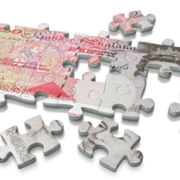10
Finding Help To Get Out Of Debt
Posted by | Posted in Debt Management | Posted on 10-09-2010
For many credit card holders, credit card debt can put a damper on what would have been a quick fix to financial woes. High credit card interest rates can lead to substantial credit card debt for millions of individuals and families around the world. It is far too easy for credit card holders to find themselves falling into credit card debt. High credit card interest rates are not the only factor that leads to a surplus of credit card debt, the high expenses people must cover in order to get by in their everyday lives lead to the general public seeking financial help. Credit cards seem like an easy answer, allowing customers to buy things now and pay for them later. However, if put in the wrong hands, credits cards can lead to even more financial trouble than the customer was already in.
There are a number of companies who capitalize on the large amount of credit card debt that can be found throughout the country and the world. These companies claim to have all the financial solutions customers who are in debt are looking for. How many times have you seen advertisements for companies claiming to get you out of credit card debt in five easy steps, or claiming to help you eliminate credit card debt in just months? The claims seem promising to people trying desperately to get themselves out of the throngs of bad credit. However, not all these companies can be trusted. It is important for any customers tempted by these get out of debt fast claims to first research these companies. Many companies simply use these empty promises as a way to prey on those who have already established bad credit and seem like easy targets to get quick cash from.
But do not worry, you do not have to fall victim. If you are tempted to employ the services of a company offering credit card help, be sure to do your homework. Research the company; try to find former customers to talk to, and make sure that your money will be spent wisely - helping you get out of debt. In far too many cases people who are already in financial trouble find themselves falling in further debt after being scammed by companies who claim to have all the answers to getting out of credit card debt. In fact these companies simply offer useless tips while scamming customers out of even more money. In fact, some debt-help companies do just the opposite - cause further debt for their financially troubled customers. Customers who are well informed and ready to find the right company to help them get out of debt will be able to spot frauds right away and employ the services of a company that will offer valid assistance rather than a hoax.



